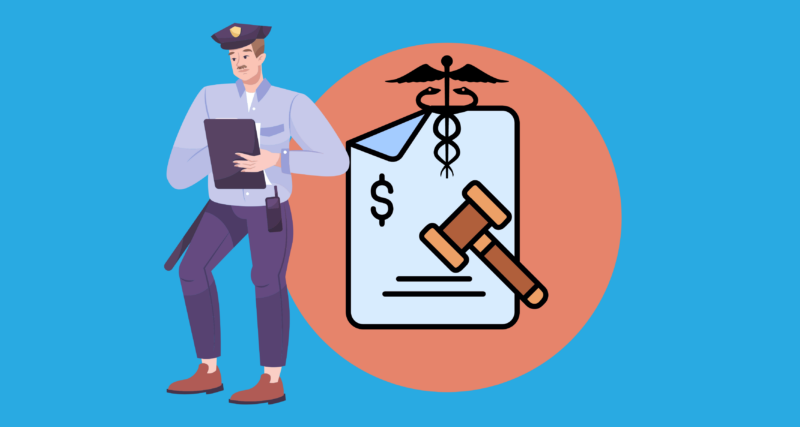The Health Insurance Portability and Accountability Act (HIPAA), enacted in 1996, revolutionized the way healthcare providers and related entities handle patient information.
The primary goal is to safeguard patients’ medical records and other health information provided to health plans, doctors, hospitals, and other healthcare providers. The violation occurs when there is a breach of an individual’s privacy rights or unauthorized disclosure of protected health information (PHI).
What Constitutes a HIPAA Violation?
A HIPAA violation occurs when there is a failure to comply with any aspect of HIPAA standards and provisions. This can happen in various ways: Understanding what constitutes a HIPAA violation is critical for healthcare providers, employees, and patients. HIPAA violations can range from minor oversights to significant breaches, with varying degrees of repercussions.
-
Unauthorized Access to Protected Health Information (PHI):

Unauthorized access to PHI is a common HIPAA violation. This can occur when healthcare employees access patient information without a valid reason or when PHI is disclosed without patient consent. For instance, if a staff member checks a celebrity’s medical records out of curiosity, it’s a violation. Such incidents not only breach confidentiality but also erode patient trust.
-
Failure to Secure PHI:
HIPAA mandates that covered entities and their business associates implement safeguards to protect PHI. This includes securing physical records in locked cabinets and encrypting electronic PHI. Failure to enforce these safeguards can lead to accidental disclosures or cyber attacks, resulting in significant data breaches. For example, an unencrypted laptop containing patient information, if stolen, can lead to a serious HIPAA violation.
-
Lack of Employee Training:
Providing regular HIPAA training to employees is essential. Lack of training can lead to inadvertent violations, such as employees discussing patient information in public places or not understanding the protocols for releasing information. Regular training sessions should cover the nuances of HIPAA rules and the importance of confidentiality.
-
Breaches Due to Lost or Stolen Devices:
Portable devices like laptops, tablets, and smartphones are convenient for accessing PHI on the go. However, they are also vulnerable to theft or loss. If these devices contain unencrypted PHI and fall into the wrong hands, it’s a HIPAA violation. Regular audits and implementing policies like encryption and remote wipe capabilities can mitigate these risks.
-
Not Providing Patients Access to Their Records:
Patients have the right to access their health records. Denying or delaying access without a valid reason is a violation of HIPAA. Healthcare providers should have efficient processes to handle patient requests for their medical records.
-
Improper Disposal of PHI:

Disposing of PHI improperly is a common but often overlooked violation. PHI should be shredded, destroyed, or otherwise made unreadable before disposal. For electronic records, this means using methods like wiping or degaussing hard drives.
-
Inadequate Risk Assessment and Management:
Regular risk assessments are required to identify vulnerabilities in the protection of PHI. Failure to conduct these assessments or address identified risks can result in violations. For example, if a risk assessment identifies an outdated security system but the entity fails to update it, leading to a breach, it’s a HIPAA violation.
-
Sharing PHI Without Consent:
Disclosing PHI without patient consent or without a valid reason is a violation. This includes sharing information with third parties like marketers or reporters, or even discussing patient information with family members without consent.
-
Social Media Mishaps:
With the rise of social media, there have been increasing instances of healthcare employees sharing patient information online, intentionally or unintentionally. Posting about patients, even without naming them, can be a violation if the information shared allows for patient identification.
-
Failure to Report Breaches:
HIPAA requires covered entities to report breaches of PHI. Failing to report a breach, whether due to oversight or intentional concealment, is a violation. Entities must report breaches promptly to the affected individuals, the HHS, and in some cases, to the media.
-
Consequences of Violations:
The consequences of HIPAA violations are substantial. They include fines ranging from $100 to $50,000 per violation, with a maximum of $1.5 million per year for each violation category. In severe cases, violations can lead to criminal charges, including fines and imprisonment. Moreover, violations can damage the reputation of the healthcare provider and erode patient trust.
Common Examples

The problems can manifest in various forms, ranging from minor oversights to major breaches. Understanding these common examples is crucial in identifying and preventing potential violations.
- Small-Scale vs. Large-Scale: Small-scale case might include a healthcare worker discussing patient information in an elevator or accidentally sending a patient’s details to the wrong person. In contrast, large-scale one often involve data breaches where unauthorized individuals access thousands of patient records. Both types can significantly impact patient trust and an organization’s reputation.
- Consequences: The consequences vary based on the severity and intent of the violation. They can range from mandatory corrective action plans to significant fines. For instance, losing an unencrypted laptop containing PHI might result in a fine of several hundred thousand dollars, while willfully neglecting to protect PHI could lead to fines in the millions.
How To Prevent These Issues?
Prevention is vital for maintaining patient trust and avoiding legal repercussions. Here are strategies for prevention:
- Best Practices for Healthcare Providers: Healthcare providers should conduct regular risk assessments to identify potential vulnerabilities in their handling of PHI. This includes reviewing and updating security protocols, ensuring adequate encryption of electronic records, and securing physical files.
- Importance of Regular Training: Continuous training for all staff members is essential. Training should cover the basics of HIPAA, real-world scenarios of potential breaches, and updates on laws or best practices. It’s crucial for all employees, not just those in direct contact with PHI, to understand the importance of HIPAA compliance.
- Implementing Strong Security Measures: This includes both physical and technical measures. Physical measures might involve secure storage for physical records, while technical measures could include the use of encryption, strong password policies, and regular software updates. Additionally, implementing policies like minimum necessary use and regular audits can significantly reduce the risk of violations.
Legal Implications

The Office for Civil Rights (OCR) under the U.S. Department of Health and Human Services (HHS) enforces HIPAA’s rules and can impose penalties on entities that fail to comply.
- Penalties and Fines: It can result in a range of penalties, from minor fines for unintentional breaches to major penalties for willful neglect. The severity of the penalty often depends on the type and the harm caused. Entities found in violation may also be required to take corrective action to prevent future breaches.
- Legal Cases and Rulings: There have been several high-profile legal cases involving HIPAA violations, resulting in significant fines and settlements. These cases often serve as cautionary tales and learning opportunities for other organizations handling PHI.
FAQs
Can patients be responsible for HIPAA violations?
Generally, patients are not held responsible for HIPAA violations since the law applies to covered entities like healthcare providers, health plans, and healthcare clearinghouses.
Does HIPAA apply to health information discussed verbally?
Yes, HIPAA covers all forms of Protected Health Information (PHI), including verbal discussions. Healthcare providers must be cautious when discussing PHI and ensure that such conversations are private and cannot be overheard by unauthorized individuals.
Are small healthcare practices held to the same HIPAA standards as larger hospitals?
Yes, HIPAA applies to all covered entities, regardless of their size. This means that small healthcare practices are required to adhere to the same HIPAA standards as larger hospitals. The scale of compliance efforts might differ, but the obligation to protect PHI remains the same.
How does HIPAA apply to electronic health records (EHRs)?
HIPAA’s Security Rule specifically addresses the need to protect electronic Protected Health Information (ePHI), which includes information in EHR systems. This means implementing appropriate administrative, physical, and technical safeguards to ensure the confidentiality, integrity, and security of ePHI.
Can employees be personally fined for HIPAA violations?
In some cases, employees can face personal fines or criminal charges for HIPAA violations, especially if they intentionally access or disclose PHI without authorization. Employers can also face penalties for the actions of their employees if due diligence in training and safeguards was not exercised.
Summary
Learning more about what constitutes a violation is imperative for everyone involved in the healthcare sector, from administrators and healthcare providers to patients. HIPAA’s comprehensive guidelines are designed to safeguard patient information, a responsibility that extends to all forms of PHI, whether electronic, written, or verbal.
Despite its complexities, the essence of HIPAA is straightforward: to maintain the privacy and security of patient information. The consequences are significant, ranging from financial penalties to legal repercussions, and can severely impact both the reputation and operations of healthcare entities.
